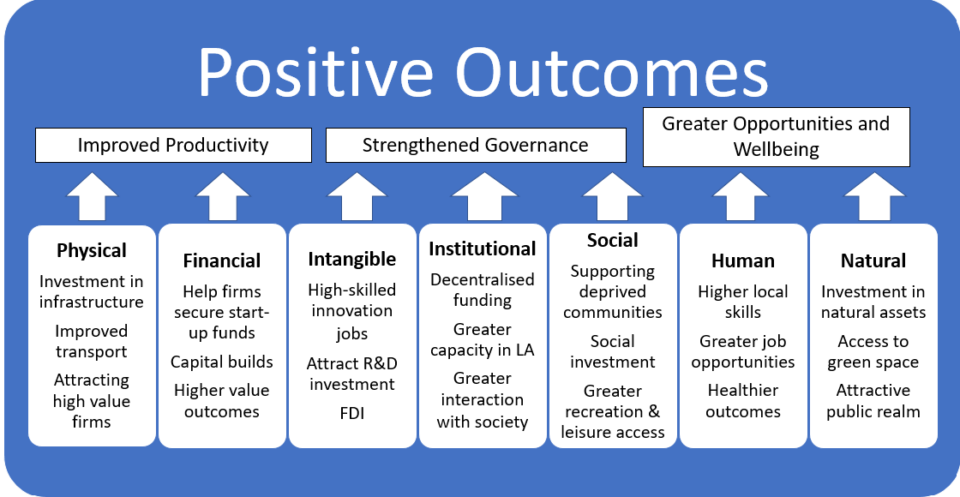This project involves researchers working with places to better understand how they can improve productivity, along with their economic and social conditions with the aim of becoming more prosperous. It aims to work with stakeholders in places across the UK to help develop a broad-based investment strategy which will allow these places to improve the productive use of their resources. The project team works closely with The Productivity Institute’s eight Regional Productivity Forums (RPFs) to identify potential places and partners across the UK and will continue to work with them for the duration of the project.
Why is the research needed?
Regional inequalities in the UK are stark. Statistics collected in the UK show the large regional differences from healthy life expectancy, income, house prices, investment, productivity, skills, and public services.
Studies that have looked at inequality in output per head over the past 100 years show that the UK regions were most equal during the 1970s, following a period of significant investment in public services (the welfare state), industry and housing after the Second World War. There has been much policy churn in regional policy since: in just over three decades there have been over 50 local economic growth initiatives.
Changes in the economy, such as deindustrialisation and increased clustering of innovation hubs, have had a greater impact in some areas than others, and there has not always been agreement on the best course of mitigating those effects for places which have been left behind.
Our approach
We suggest that a broad-based investment strategy focusing on all the capitals, rather than one asset, is essential to achieve consistent and improvements in places over the long term. As such, places need to not only focus on one asset, such as skills or infrastructure, but think and act strategically to build relationships across assets and resources that they have or need to create or rebuild. A broad-based investment strategy is more likely to create positive cycles that will add value for people and place and raise productivity.

The Levelling Up White Paper
The UK Government’s Levelling Up White Paper, launched in February 2022, has a broad objective for policy makers to provide every citizen of the UK with the opportunity to flourish, meaning they lead longer and more fulfilling lives, and see sustained improvements in living standards and well-being.
The Levelling Up White paper defines spatial inequalities largely in terms of different levels of resources or ‘capitals’. The report sets out six capitals conceived to help places drive levelling up (physical, human, intangible, financial, social and institutional) with the ostensive objective to strengthen specific capitals in places where they are comparatively weak. We analyse these in places and include natural capital.
For more insights into how this six capitals approach impacts the real world, read our blog about Rochdale: How does the government’s focus on Levelling Up capitals translate to reality in Rochdale?
Future focus on Fermanagh-Omagh and north east London
The first phase of the project focused on Rochdale. We are currently working with Fermanagh-Omagh District Council, Northern Ireland and three London Boroughs that make up most of the Upper Lea Valley (Haringey, Enfield, and Waltham Forest).
We plan to publish a data tool in Autumn 2024 so local authority districts can monitor the strength and weaknesses of capitals in their local area.
Interested in your area taking part?
If your area is keen to take part in our research, please read our prospectus and contact us at tpi@manchester.ac.uk.
Lead researcher Philip McCann (The University of Manchester)
Collaborators: Marianne Sensier, Kate Penney, Joel Hoskins, Michael Francis and Abhi Sharma (all The University of Manchester)



